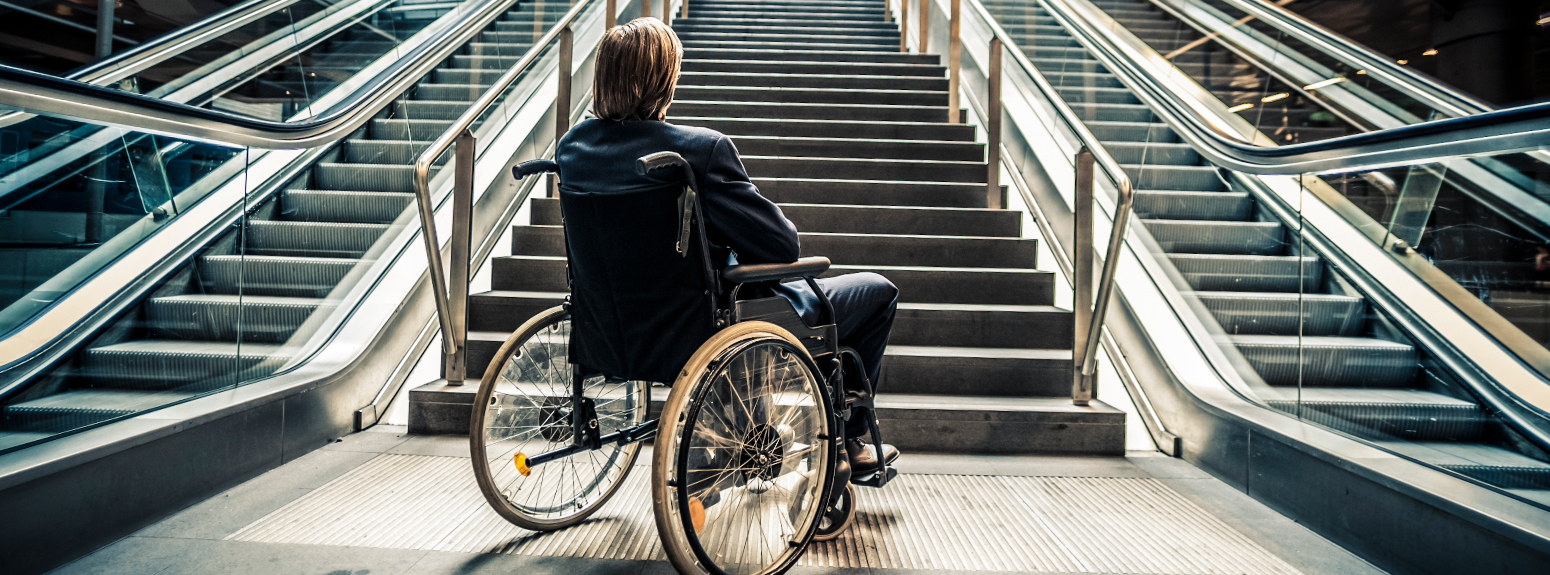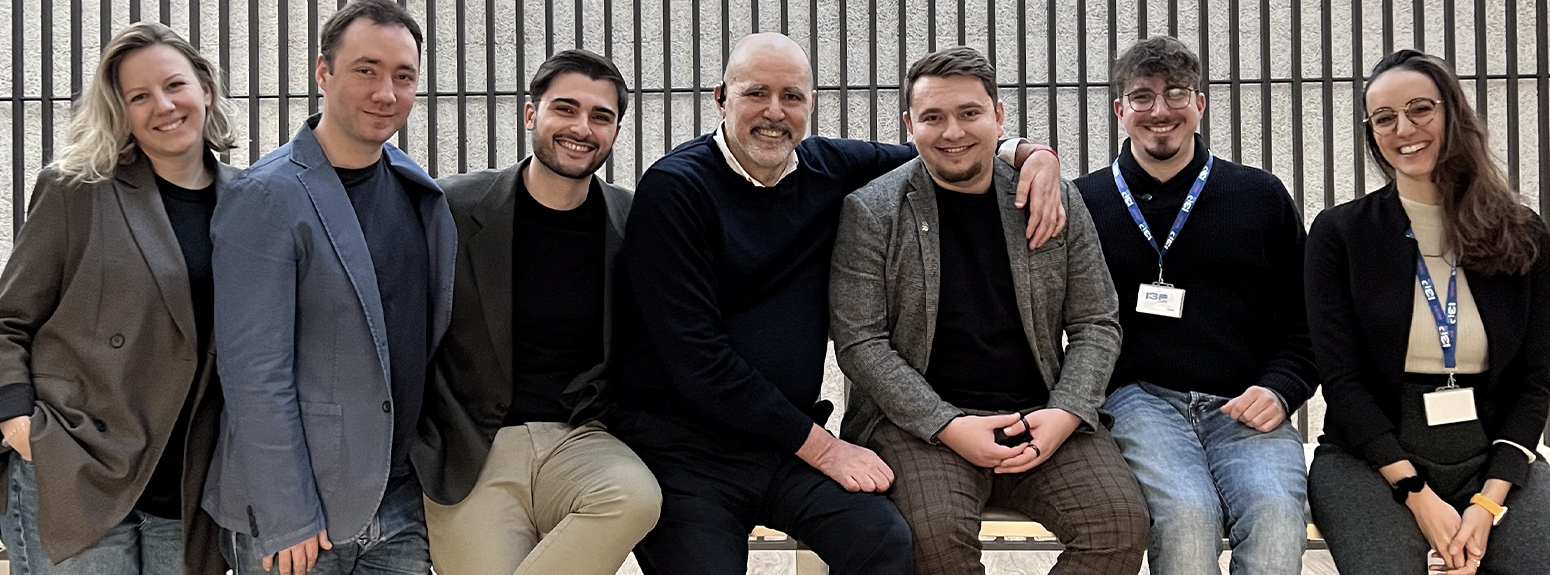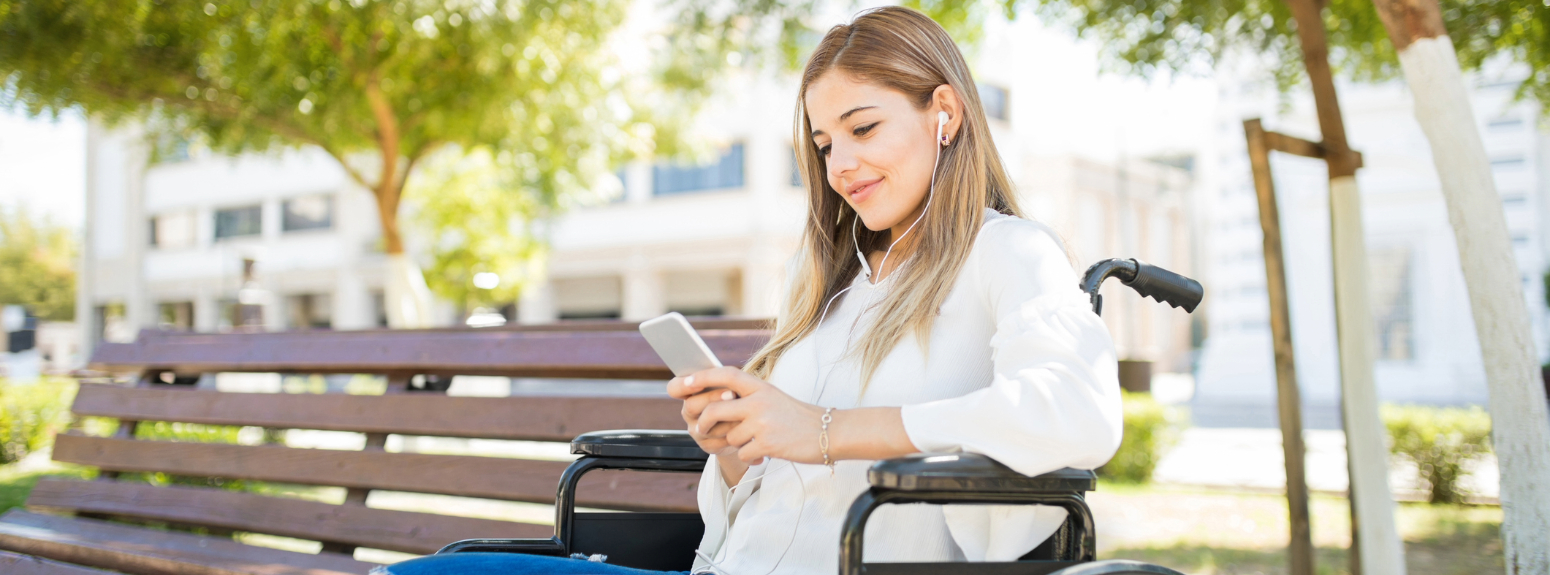Startup Tales | How WeGlad makes mobility inclusive and accessible
Founded in Turin in March 2021 by Petru Capatina and Paolo Bottiglieri, thanks to a collaborative app the startup maps architectural barriers and obstacles outdoors and in the premises helping people with disabilities and other difficulties, with important goals for an increasingly inclusive future


Reshaping Humanity through inclusion: this is the mission of WeGlad, an innovative startup with a social vocation and Benefit Company (the first company having both characteristics simultaneously in Piedmont and the third in Italy) vertical in diversity & inclusion, founded in Turin in March 2021 by Petru Capatina and Paolo Bottiglieri.
Taking advantage of technology, thanks to the homonymous collaborative app inspired by Waze, the young Turin reality helps people with difficulties and mobility disabilities to move independently in cities and indoor, mapping architectural barriers and obstacles to make available the data collected also for the Public Administration. A process that involves users, companies, institutions and stakeholders, with the aim of simplifying mobility for all and projecting humanity towards an increasingly inclusive and accessible future.
The origins of WeGlad
Moldavian class 1996 moved to Italy in 2006, in the third grade, to contribute to family finances Capatina begins to work in the circus: “When the circus arrived in Turin, after an ‘extravagant’ interview during a show I was taken to deal the sale of photographs”.
Despite his travels in Italy and abroad, Petru combines study and work with great self-sacrifice and, after graduating, enrolls in the degree course in Business Administration focused on innovation at the University of Turin - where he knows Paolo Bottiglieri - with the aim of entering the world of management consulting.
During the first year of the course Capatina reaches the professional goal with an internship in Warsaw, and once back in Italy he deals with several projects in the corporate world maintaining relations with the circus, for which he forms sales teams of other students looking for opportunities to travel and earn some money.
In the last year of university, the growing passion for exponential technology - able to solve complex problems quickly - changes professional ambitions: “Studying it, I decided to become an entrepreneur using technology and its rapid expansion to generate social impact and do good, with Paolo to ‘marry’ my choice”, says Capatina.
The desire to use technology to help people with difficulties and disabilities originates in the personal experiences of WeGlad co-founders. After being hit by a car while on a bike, in fact, Capatina had to learn to walk again, then becoming the caregiver of a friend acrobat victim of an injury and forced to move with a wheelchair. Bottiglieri, on the other hand, had a grandfather with a diabetic foot subsequently amputated, of which he was also a caregiver.
After the studies, therefore, the two decide to tackle the problem and, together with three other partners, start a project that combines technological innovation and social commitment by founding a company focused on accessible tourism, liquidated after only 11 months. “Great enthusiasm, an investor found right away, but huge difficulties in moving forward thanks to our inexperience, the complexity in finding huge data of structures around the world, and especially the fact that we have put tourism before daily mobility” remember Capatina.


The path with Techstars and the birth of WeGlad
“The intention - explains Petru - was to restart to solve a real problem with a ‘big’ market. Exhausted all the economic resources and without having set up a new company, we decided to apply for the first edition of Techstars in Turin: the acceleration program - promoted by Intesa Sanpaolo Innovation Center - that I value most in the world”.
The participation in Techstars marks a turning point, providing Capatina and Bottiglieri with the tools to restart, set up the business and plan the climb based on solid foundations this time. Also because, Petru recalls, “we managed to get the support and help of numerous mentors compared to the standards, and some of them then invested in our project”.
Finished the course, Capatina and Bottiglieri in March 2021 found WeGlad (Welcome Gladiators), where gladiators are all the people who fight “in the Arena of Life” against their will, facing obstacles they have not chosen to gain autonomy and freedom of movement.
“We left with hundreds of hours in interviews with people with different disabilities and difficulties, to understand how they lived, how they moved, what problems they encountered, we also listen to and analyze the realities that before us had proposed similar solutions failing”, recalls Petru.
The results were immediately positive, and just five months after its foundation, the startup received the National Award for Civil Economy. “An unthinkable goal because they believe they are ‘wrong” after the failure of the first initiative. Instead, we left immediately and, despite the economic difficulties, we did it with renewed energy”, highlights the co-founder of WeGlad
“Shortly before - remembers Capatina - I have known Riccardo Taverna, great manager with many experiences in the world of the corporate reputation let alone impassioned to the topics of the sustainability from time”. Taverna was ending his career, living with a degenerative neurological disease of the immune system, to which was added the diagnosis of Parkinson followed by a heart attack.
“We managed to convince him and enthuse him with our project, so he came back into the game by joining the WeGlad executive team. Given the great commitment to help us, we decided to appoint Riccardo President of the company, adding to our reality an important set of skills,” explains Capatina.
How works WeGlad, the app that maps obstacles and architectural barriers to propose accessible routes and venues
The first “product” proposed by the Turin startup incubated in I3P is a collaborative app open to everyone and supported by a community. A sort of Waze, with the difference that “we have a social vocation. Created the first version of the app, indeed very basic, given the positive feedback after several attempts we have created a well-balanced and less complex, while creating the process of mapping”, explains Capatina.
WeGlad, in fact, allows everyone to tag architectural barriers and other obstacles such as holes, steps, sidewalks in the application, geolocalize and photograph them, with accessibility data entered by users that offer objective information, transparent and current as they can be updated. In this perspective, the startup invents the format Mappathon. “A social game - also organized with public bodies, municipalities, companies and other realities - in which participants go hunting for barriers and obstacles to win prizes based on the points obtained, also learning to be more inclusive and to help others” explains the CEO of the Turin startup.
With enough data collected, WeGlad will allow for the first time in the world to select the starting point and destination, indicating in a personalized way which obstacles to avoid depending on the user’s disability, returning the ‘best’ route according to the parameters entered. Finally, the Community on which the app is based allows users to interact and compare on “accessible” paths, share experiences and deal with different topics in the dedicated rooms.
A successful model, with the co-founders of WeGlad included among the 100 Under 30 of Forbes in the Social Impact category in 2022, and Capatina considered by the global network Nova and the business school Bocconi among the 10 talents under 35 most promising in the Social Impact, and nominated Millennial Honorary of the Year as part of the MyLLENIUM Award 2023: just some of the many Awards and recognitions obtained in just three years.


The project “REACT - Accessible and Transparent Retail”
“Having to bear costs to keep the WeGlad app alive - explains Capatina - we have developed various business models without monetizing on users. After an ‘intense’ brainstorming in which we evaluated various options, we focused on retail since retailers such as GDO, fashion brands and banks usually have many outlets around the world”.
“We immediately understood the need to offer a higher quality service because it is connected to the brand identity - adds the CEO of WeGlad -, and the value proposition has expanded to include issues such as, for example, sensory disabilities and difficulties related to parenting, eating disorders, neurodivergence and pet friendly”.
A large market that, explains the CEO of WeGlad, “led us to propose to companies to help them in the mapping of all stores”. “Out of 700 companies analyzed - he continues- only 1% have accessibility data, however basic. With our expertise and our technological solution, we have therefore created another product, namely an ‘enterprise’ web app called REACT (Accessible and Transparent Retail), through which we interact with Corporate to map their branches, to make accessibility data available directly on their digital assets”.
WeGlad and the collaboration with Intesa Sanpaolo and Intesa Sanpaolo Innovation Center
After the first contact with Intesa Sanpaolo Innovation Center on the occasion of its participation in Techstars, WeGlad collaborated with the Company in the project “beyond the barriers” during which, explains Petru, “with the community we have mapped everything around the Intesa Sanpaolo Skyscraper in Turin to create accessibility data”.
The startup has successfully applied to participate in the Arieli Capital accelerator in Tel Aviv, of which Intesa Sanpaolo Innovation Center is a partner. “It has been a great joy for us because our ‘inspiration muse’ is Waze, born in Israel”, says the CEO of WeGlad, although the program obviously will not take place until the situation in the country is “normalized”.
Looking to the future, the Turin reality aims to map all the branches of the Intesa Sanpaolo Group. “We are discussing how to do it, the hope is to succeed because on the one hand the attention of the Bank for Social Inclusion is a hallmark; on the other hand, because it is one of the most relevant Italian institutions in Europe and, supporting us, would also be an example not only in the banking world, reaffirming how accessibility is fundamental”, stresses Capatina.
The acceleration in Silicon Valley and the prospects of WeGlad
WeGlad was also selected by Alchemist in 2023, one of the best and most prestigious B2B acceleration programs in Silicon Valley. A path that has opened growth prospects in North America and, especially in Canada, which will be explored after having developed and tested the new business model in Italy to prepare adequately for the new challenge.
In addition, following the new European Sustainability Reporting Standards that aim to increase transparency and reduce discrimination towards end users, accessibility data are increasingly important and soon mandatory for large companies. In Italy, the obligation to draw up PEBA (Plans for the elimination of architectural barriers) was introduced for municipalities with a special law, but very few have done so. The NRRP includes dedicated resources that can only be accessed by having a PEBA set up, and WeGlad can be a useful tool for this purpose as well.
Regarding the technological aspects, the Turin reality is approaching the world of artificial intelligence and Digital twins, after having already integrated into the new app a tool based on AI that communicates accessibility data through speech synthesis and allows users to interact with the map using voice commands in natural language.
An updated and more user-friendly version of the WeGlad app will be available soon, with the startup also developing a model similar to REACT “for complex buildings such as stadiums, shopping centers, racetracks and cinemas, which will allow people to navigate the 3D accessibility tags with virtual tours”, concludes Capatina.
